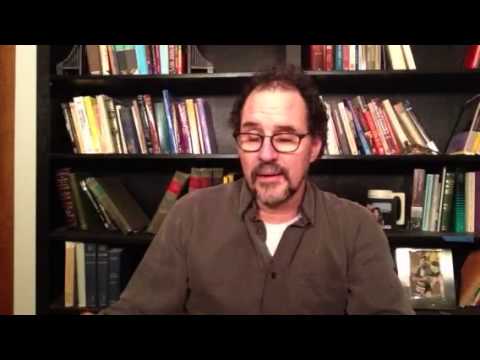We run our website the way we wished the whole internet worked: we provide high quality original content with no ads. We are funded solely by your direct support. Please consider supporting this project.

Free Will: The origin of evil
In this continuing series on free will, Greg discusses how evil can only be accounted for if we acknowledge free will. This is especially true if you believe that God is good.
Category: Q&A
Tags: Calvinism, Determinism, Evil, Free Will, Open Theism, Problem of Evil
Topics: Free Will and the Future, Providence, Predestination and Free Will
Related Reading

Divine Accommodation and the Cross: where Calvin was onto something
Over the last few posts, I’ve been arguing that the cross represents the thematic center of everything Jesus was about. Hence, rather than striving to have a “Christocentric” theology — which is so broad it means next to nothing—we ought to sharpen our focus by striving for a “cruciform” theology. I then offered some suggestions…

Isn’t God “changing his mind” an anthropomorphism?
Question: Traditionalists argue that passages that refer to God “changing his mind” are anthropomorphic, depicting God in human terms. Open Theists take these passages literally, however. But if you’re going to take these passages literally, it seems you should, for consistency’s sake, also interpret passages about God “coming down” from heaven literally (e.g. Gen. 11:5;…

Two Ancient (and Modern) Motivations for Ascribing Exhaustively Definite Foreknowledge to God
A historic overview and critical assessment Abstract: The traditional Christian view that God foreknows the future exclusively in terms of what will and will not come to pass is partially rooted in two ancient Hellenistic philosophical assumptions. Hellenistic philosophers universally assumed that propositions asserting’ x will occur’ contradict propositions asserting’ x will not occur’ and…

What is the significance of Jeremiah 26:19?
“Did [Hezekiah] not fear the Lord and entreat the favor of the Lord, and did not the Lord change his mind about the disaster that he had pronounced against [Israel]?” As in 2 Kings 20:1–6 and Isaiah 38:1–5, if the future is exhaustive settled, it seems God could not have been forthright when he told…

The End and Beginning of Faith
Eduardo Amorim via Compfight Micah J. Murray shared the story of how his doubts and loss of faith led him to a truer, deeper faith. While we fear the doubts that sometimes sneak in, sometimes those doubts lead us to a place of goodness. Be not afraid. From Micah’s story: Eventually I gave up on…

Does the Open View Undermine God’s Sovereignty?
A common objection to the concept of a risk-taking God is that it seems to undermine God’s sovereignty. If any particular individual can opt out of God’s plan, then every individual could conceivably opt out of God’s plan, and it seems that God’s entire plan for world history could ultimately fail. Some have argued that…
